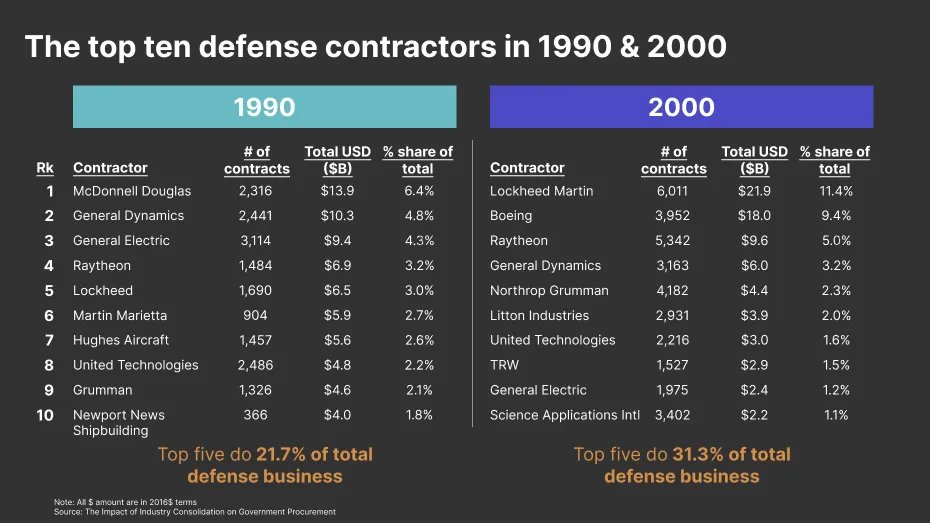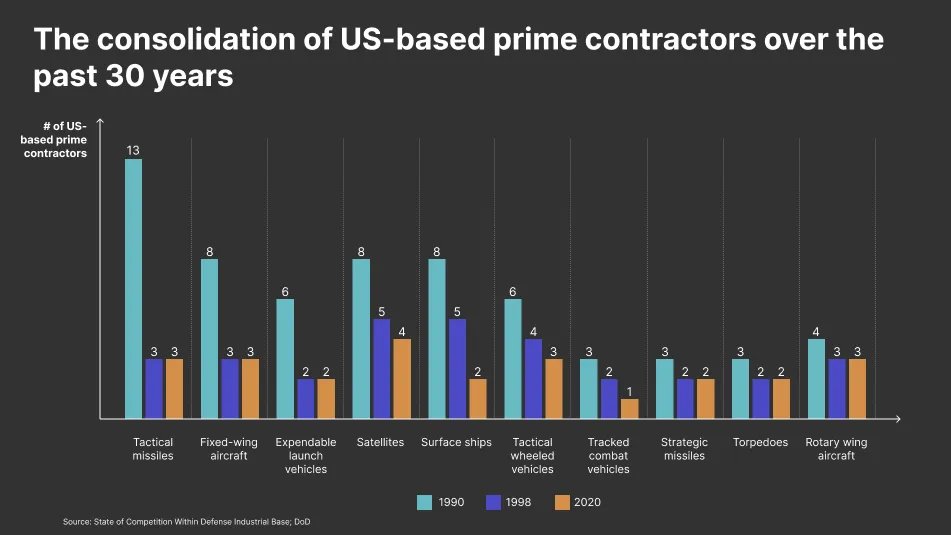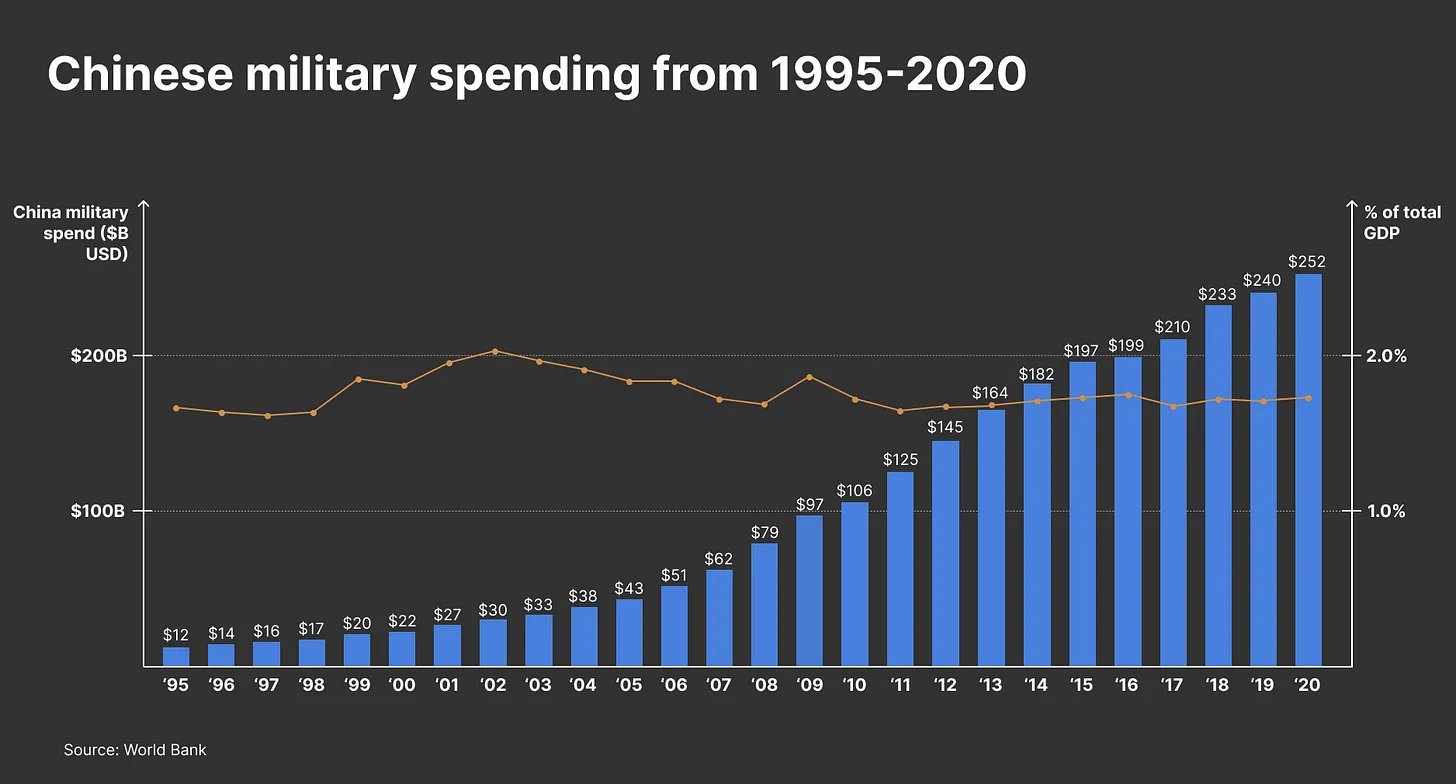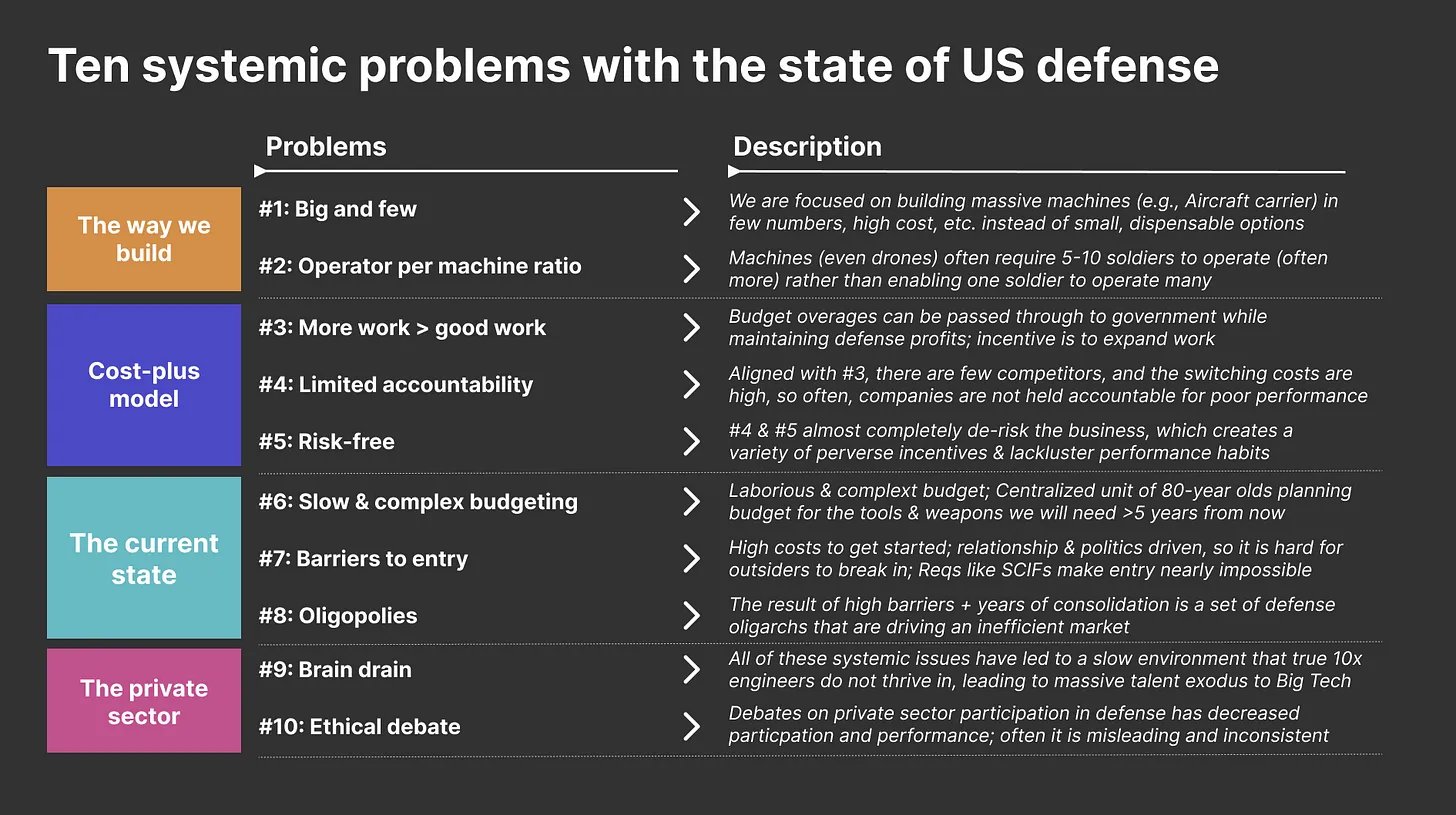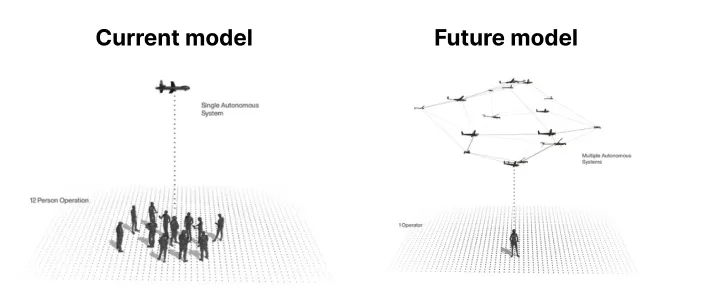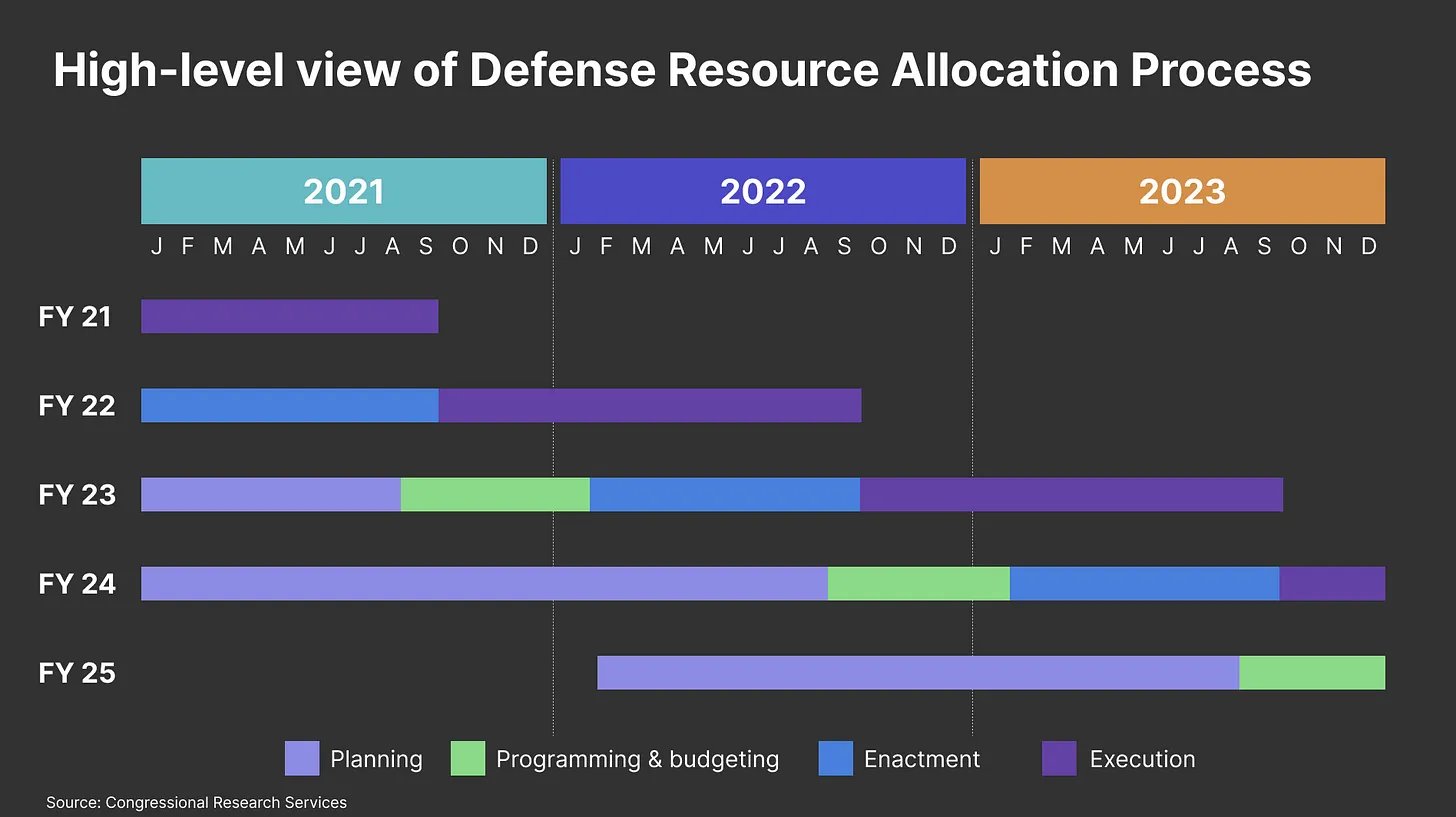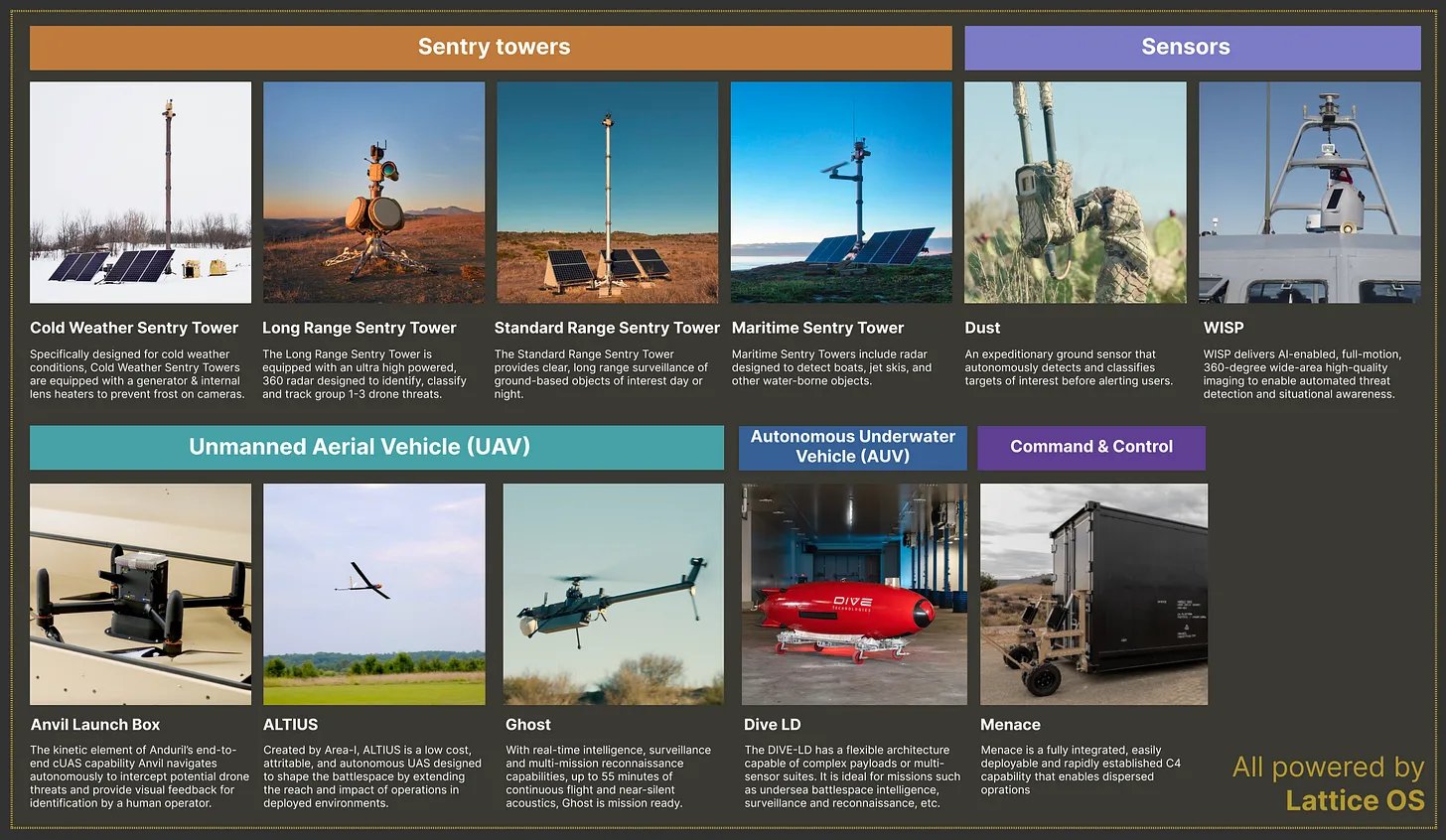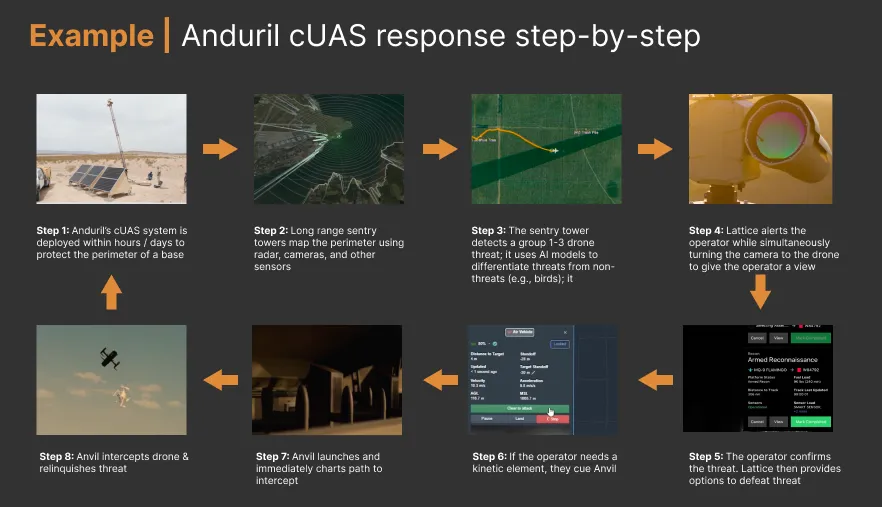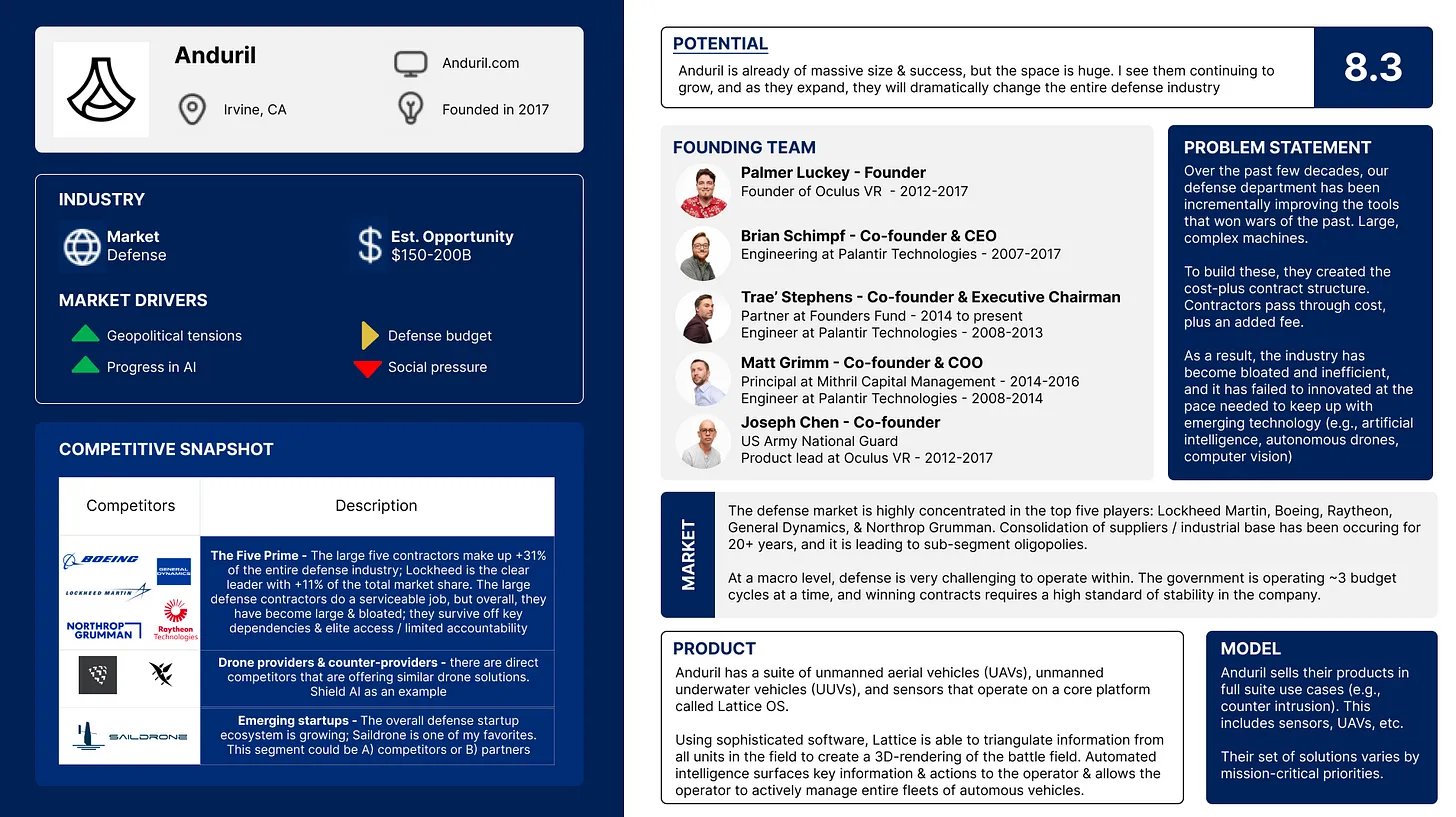Thread
1/ @anduriltech: Fixing the broken sword of US defense
For years, they were the industry castaway. Now, they are the "current thing"
In my latest newsletter, I do a breakdown of the multi-billion dollar Thielean-inspired defense startup.
Here is a summary
For years, they were the industry castaway. Now, they are the "current thing"
In my latest newsletter, I do a breakdown of the multi-billion dollar Thielean-inspired defense startup.
Here is a summary
2/ First, let's talk about the defense sector. Four macro factors to know:
1. The consolidation of defense contractors
2. The challenges of the private sector
3. The slowing pace of innovation
4. The rise of our adversaries
1. The consolidation of defense contractors
2. The challenges of the private sector
3. The slowing pace of innovation
4. The rise of our adversaries
3/ In 1993, defense secretary William Perry told defense contractors that the post-Cold War environment would reduce spend.
This started a massive wave of consolidation. This dinner was known as the "Last Supper."
This started a massive wave of consolidation. This dinner was known as the "Last Supper."
4/ This create The Big Five.
Lockheed Martin, Boeing, Raytheon, General Dynamics, and Northrop Grumman did +30% of all defense business in 2000 🤯
Lockheed Martin, Boeing, Raytheon, General Dynamics, and Northrop Grumman did +30% of all defense business in 2000 🤯
5/ At an individual weapon level, we often only have 1-3 vendors competing for contracts.
It functions like an oligopoly, and as you can imagine, this is creating a low competition environment (not good)
It functions like an oligopoly, and as you can imagine, this is creating a low competition environment (not good)
6/ Private sector participants like universities & tech have abandoned defense
When US defense contracts surface, employees push back for ethical concerns
These same institutions are investing heavily in foreign countries. @Apple invested $50B in China for chip manufacturing.
When US defense contracts surface, employees push back for ethical concerns
These same institutions are investing heavily in foreign countries. @Apple invested $50B in China for chip manufacturing.
7/ These two factors are leading to MUCH slower innovation.
"In my forty years at Lockheed, I worked on twenty-seven different airplanes. Today's young engineer will be lucky to build even one."
- Ben Rich was a former Lockheed Martin Skunk Director
"In my forty years at Lockheed, I worked on twenty-seven different airplanes. Today's young engineer will be lucky to build even one."
- Ben Rich was a former Lockheed Martin Skunk Director
8/ This is even more troubling when you look at adversaries.
China has dramatically been increasing military spend.
China has dramatically been increasing military spend.
9/ In 1996, the US would have a major advantage across 14 of the 18 scenarios.
In 2017, that number dropped to two!
In 2017, that number dropped to two!
11/ Starting with the way we build
The 12-vessel Columbia sub class is est. to be $112B.
The F-35 has 300,000+ parts
We are building the tools of the past. These tools are big and few, and they take a lot of people to operate.
With drones & AI, we can flip the model
The 12-vessel Columbia sub class is est. to be $112B.
The F-35 has 300,000+ parts
We are building the tools of the past. These tools are big and few, and they take a lot of people to operate.
With drones & AI, we can flip the model
12/ Because we have previously built massive projects, the cost-plus model emerged.
The contractor bills the government for cost PLUS the a margin.
The problem: It removes risk, and incentivizes more work instead of good work
The more cost... the more revenue
The contractor bills the government for cost PLUS the a margin.
The problem: It removes risk, and incentivizes more work instead of good work
The more cost... the more revenue
13/ In parallel, there is limited competition (mentioned above)
So there is no accountability.
If the contractor does a poor job (like a $1T budget on F-35 development), then what do you do? Start over. No way.
It is all risk-free. This is why it has gotten so bloated.
So there is no accountability.
If the contractor does a poor job (like a $1T budget on F-35 development), then what do you do? Start over. No way.
It is all risk-free. This is why it has gotten so bloated.
14/ Ok. Well someone will disrupt them, right?
It's an insider's game. At any given point, the US is operating 3-4 budget cycles in parallel.
You need to know the right people to win contracts in it.
Not to mention, they are risk averse. They will likely go with incumbents
It's an insider's game. At any given point, the US is operating 3-4 budget cycles in parallel.
You need to know the right people to win contracts in it.
Not to mention, they are risk averse. They will likely go with incumbents
15/ In defense of the contractors, this is how the system was designed. They are operating with incentives.
In addition, they have suffered to get solid talent. 10x engineers dont want to work in a space this slow.
Instead they all go optimize ads? Jk.
In addition, they have suffered to get solid talent. 10x engineers dont want to work in a space this slow.
Instead they all go optimize ads? Jk.
16/ So let's discuss how @anduriltech is fixing this.
@PalmerLuckey @traestephens @SchimpfBrian & @mttgrmm set out to redesign the way we defend... using software
@PalmerLuckey @traestephens @SchimpfBrian & @mttgrmm set out to redesign the way we defend... using software
17/ Imagine a unified view of the landscape.
A single operator has full visibility, data, etc., with a fleet of autonomous vehicles monitoring and ready to act.
This is what they built. Understand. Decide. Act.
A single operator has full visibility, data, etc., with a fleet of autonomous vehicles monitoring and ready to act.
This is what they built. Understand. Decide. Act.
18/ To do this, they have a full product suite designed for specific missions.
All of these products operate off their core platform: Lattice OS.
Each one of these pieces can be engaged with by a single operator
All of these products operate off their core platform: Lattice OS.
Each one of these pieces can be engaged with by a single operator
19/ And they're all pushing the limits of innovation.
Sentry towers can be assembled in hours.
ALTIUS can be shot from a pipe on a helicopter.
They are highly efficient & much more cost effective
Sentry towers can be assembled in hours.
ALTIUS can be shot from a pipe on a helicopter.
They are highly efficient & much more cost effective
20/ You can see a step-by-step process of how it works here (at a high level).
No more manual video feeds. Automated, actionable intelligence provided to humans in real-time.
No more manual video feeds. Automated, actionable intelligence provided to humans in real-time.
21/ Most importantly, @anduriltech is applying tech principles to defense.
They invest in their own R&D. Most defense invest 1-3% of revenue. They invest +50%.
No cost-plus contracts. Anduril assumes the risk. They win by being better & delivering results
They invest in their own R&D. Most defense invest 1-3% of revenue. They invest +50%.
No cost-plus contracts. Anduril assumes the risk. They win by being better & delivering results
22/ And while defense is understandably an ethical debate, @PalmerLuckey said it best.
"To have ethical superiority, you need technical superiority."
The writeup is +5k words with WAY more details on the product. Please go read!
"To have ethical superiority, you need technical superiority."
The writeup is +5k words with WAY more details on the product. Please go read!
23/ @anduriltech has many of my favorite investors. To name a few:
@Lux_Capital - @wolfejosh @breeves08
@foundersfund
@a16z - @KTmBoyle
@generalcatalyst
And many more!
@Lux_Capital - @wolfejosh @breeves08
@foundersfund
@a16z - @KTmBoyle
@generalcatalyst
And many more!

